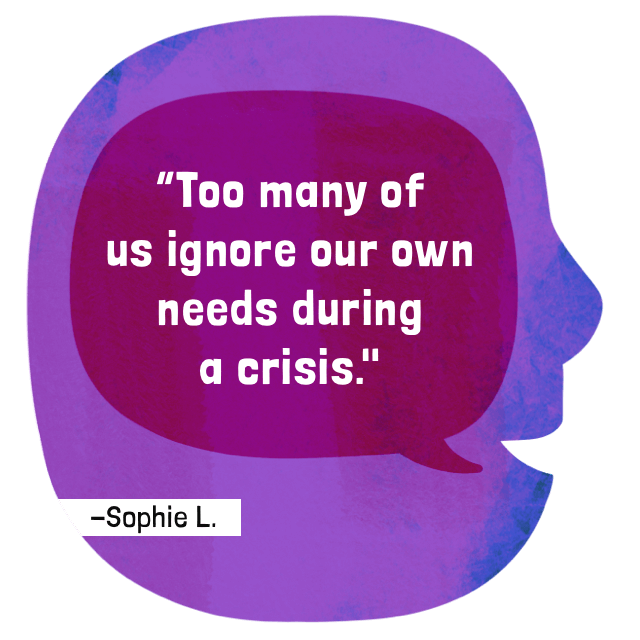Five Ways To Survive Your Loved One's Onset
The onset of my daughter's schizophrenia disorder was a frightening and confusing time. Not only had Sally received a devastating diagnosis, I had to develop new ways to communicate with her while also learning as much as I could about her symptoms.
Looking back now, I can see that my actions and behavior created the foundation for how she and I handled future crises. My mistakes sometimes left scars that were difficult to heal, but when I took the time to educate myself and prioritized well-being for both of us, recovery became a lot more manageable.
Navigating a family's members schizophrenia diagnosis
I don't need to tell you that relationships take work, especially when people live together. But throw in new behaviors and symptoms like aggression, withdrawal, and flat affect, and getting along can suddenly seem almost impossible.
During those challenging days, I learned by trial, error, and sometimes by being too exhausted to think straight, when giving up was exactly what was needed. Here are my top tips for what helped the most...
Tips for a loved one's onset
1. Have a plan
Things may feel extremely chaotic in the beginning, especially if your loved one's delusions, hallucinations, or other symptoms interfere with household routines. But the only time you must act is when your loved one needs a higher level of care. Learning what constitutes an emergency and how to get help, including creating a crisis plan of action, will reduce your stress immensely.
2. Listen more than you talk
A common and damaging misperception about psychosis is that our loved ones won't remember and can't understand what is happening to and around them. This isn't necessarily true. My daughter, for instance, remembers much more about her hospitalizations than I do, including conversations with clinicians for which we were both present.
Your loved one's psychosis is an opportunity to learn about what they are experiencing and feeling as well as what they want and need. Without challenging their delusions, ask questions to clarify their experience and reality, and try to accommodate reasonable requests. For instance, while it may not be appropriate to give them your car keys, you may be able to drive them to buy cigarettes.

3. Create supportive goals
The best solution is the one that benefits everyone. Too many of us ignore our own needs during a crisis, which leads to worse outcomes for everyone. Instead, take a clear-eyed look at what must be done – for you, for your loved one, for the household – and eliminate things that aren't critical.
For instance, you may need to skip your morning walk to drive a loved one to a scheduled appointment. But it's perfectly fine to insist on access to the bathroom when your loved one has been in there for an hour, or prioritize a call with a friend over washing the car.
4. Take a break before things escalate
Our loved ones' mental health disorders are often challenging and frustrating, especially when we and our loved ones have conflicting expectations and priorities. My own volatile emotions often caused me to say and do things that I later regretted.
A measure of acceptance is called for – that you may not win this argument or get them to go to bed at a reasonable hour or convince them to bathe. But when acceptance feels out of reach for the moment, we must learn the skill of walking away.
It is with great humility that I recall when a family member who was in psychosis gently suggested during an argument that we both needed time to calm down, because continuing to argue wasn't solving anything. Of course he was right – and it was a good reminder that people in psychosis are still capable of reason and, in this case, much-needed thoughtfulness.
5. Take another break
When all else fails, when you're too tired to put one foot in front of another or when you're in danger of finding yourself at a pity party – let it go! Weed the garden, take a nap, go to a movie, cuddle with a pet, hide from your family for hours. You'll get no judgement from me!
There's no "right" way
Listen, I don’t know anyone who does this stuff "right," but we can and will survive this stage. Being gentle with yourself and your loved one will give you both the best opportunity to thrive.
